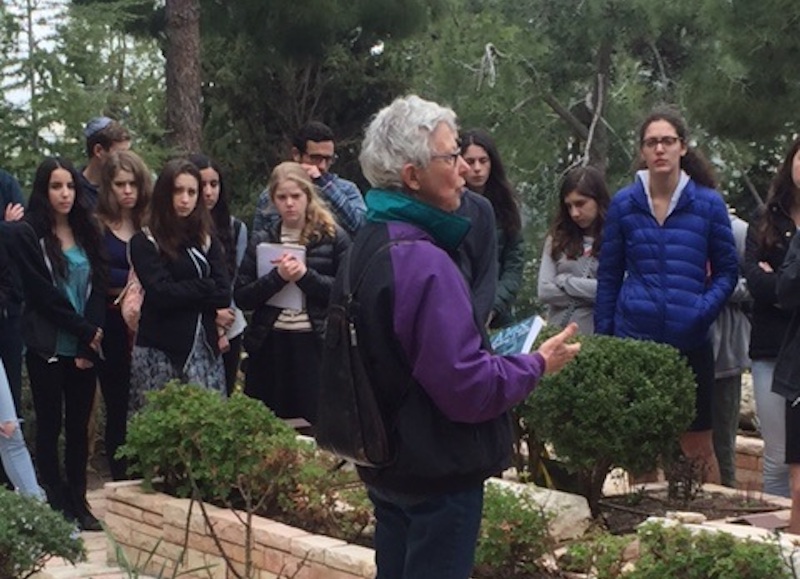This article was originally published in the August 2006 issue of Moment.
Lately, I’ve been thinking about words—my words—those that may be a piece of me worth leaving behind for my family. It’s a reflection that leads me backward and forward—backward to the challenge of gathering and sorting; forward to the decision about what to do with what I find. It connects me to a piece I wrote about my plans for the future on the day after my 70th birthday, just one year ago. Included in the list was writing an ethical will.
From medieval times, Jews wrote such documents to “transmit values, ideas and personal reflections to family and loved ones,” according to ‘Ethical Wills: A Modern Jewish Treasury’ by Nathaniel Stampfer and Jack Riemer. The impulse to offer unsolicited advice to those younger may be a universally hazardous temptation. The ethical will is still on my “to do ” list, but the more immediate challenge is sorting through my writings. If a computer could bulge, mine would be showing signs of gorging on too many saved drafts and time-bound correspondence. Our children are devoted, and maybe our grandkids will be curious enough to enter the sea of my computer memory, but no one can be expected to wade through decades of undigested words in letters, in small and large published pieces, in accounts of personal and family events.
Because I love paper, I resist the idea that writings can be safely and pleasantly preserved electronically. Nonetheless, I’ve been persuaded that paper is not the only choice. Today, there’s the fully designed book, saved in a computer and printed on demand; there are storage backups on DVDs and remote servers to prevent the disappearance of files into digital limbo. And down the road, in the compressed time in which electronic change occurs, there will probably be solutions that allow us the electronic equivalent of curling up with a book wherever and whenever.
The more complicated question is how to retrieve, sort and select in order to preserve the “me ” to be found in my writings. This is what we did for our son Alex, who became 25 on the day he was killed in battle in the Israel Defense Forces. Alex wrote everything on paper—scores of letters and diaries in several journals. They were handwritten, unedited, spontaneous descriptions of his fife, woven with hopes, aspirations, fears, criticism and praise, appreciation of family and friends, spiced with a zany humor that told tales of people who briefly entered his life while on his lone travels through Europe and, then
later, after he made his home in Israel.
After Alex died, we discovered a treasure of letters saved by us, his brothers and numerous others who could not throw them away. Some years later, we selected from those letters and his journal entries and published Alex—Building a Life. Today, almost two decades since those letters were written on air letters, scraps of paper, and in diaries Alex carried with his army gear, they still inspire and satisfy in the manner of a good friend who understands life a bit better than you.
Neither I, nor most people living much longer than Alex, possess such rich ore. And, while over the years I’ve sorted writings into electronic files, I have never separated out those with special significance to me . My belated realization is that if I had consciously thought about whether I really value something I had written, I could have assigned it to a “posterity” file. In fact, today I made three such posterity files—for letters, articles and personal accounts. Ho w much easier it would have been to sift through only three files rather than from the 225 category files and 495 individual files that reside in My Documents.
My husband and I recently spoke to a gathering of educators and students at the Pardes Institute of Jewish Studies in Jerusalem. We read some of Alex’s letters. A woman asked how to encourage young people to write letters and keep journals. I didn’t have a simple answer, but her question set me thinking about preserving words. Letters in envelopes are almost passé. Today it’s urgent to resist the degradation in writing that afflicts e-mails. We must remember the power of words and use them accurately, even reverently. An e-mail letter is a communication with a man or woman—a piece of a conversation. The epistolary tradition is a wonderful extension of the human need to share, to advise, to express emotions, to offer the self to another.
This musing leads to a daunting realization. Only by plunging into my files and selecting the words I value will I be able to leave something that may offer profit or amusement to generations following. There’s no choice but to begin.
With credit and apologies to Rabbi Tarfon: It is my responsibility to finish the work.
Top photo: Suzanne Singer speaking to children.

